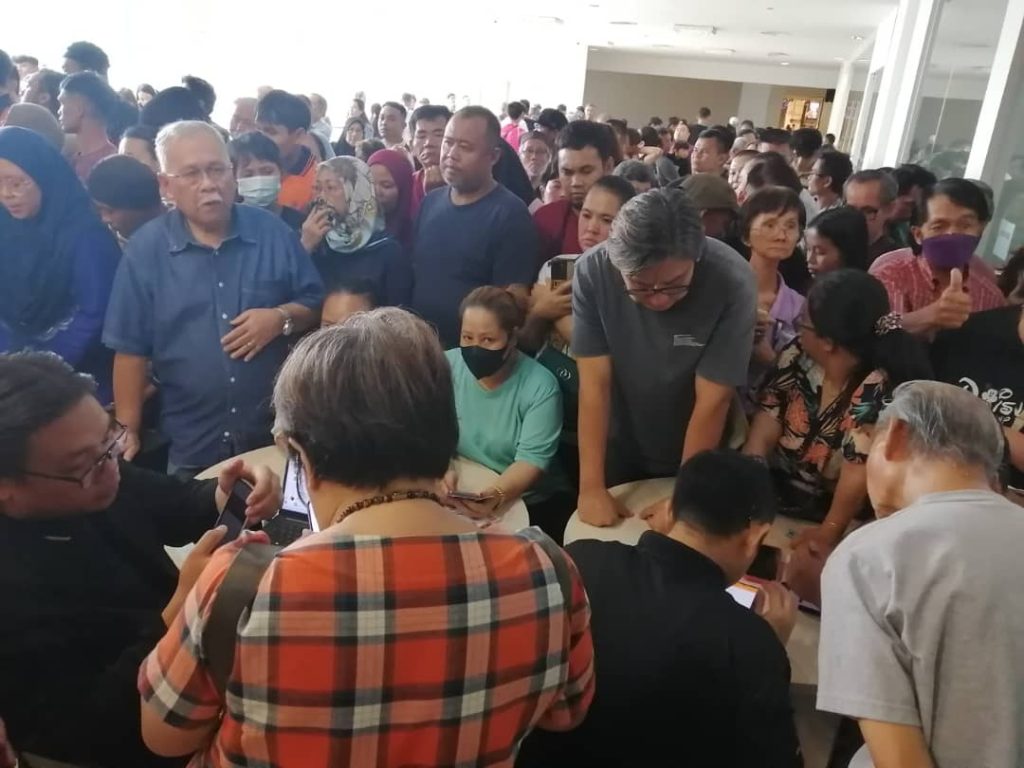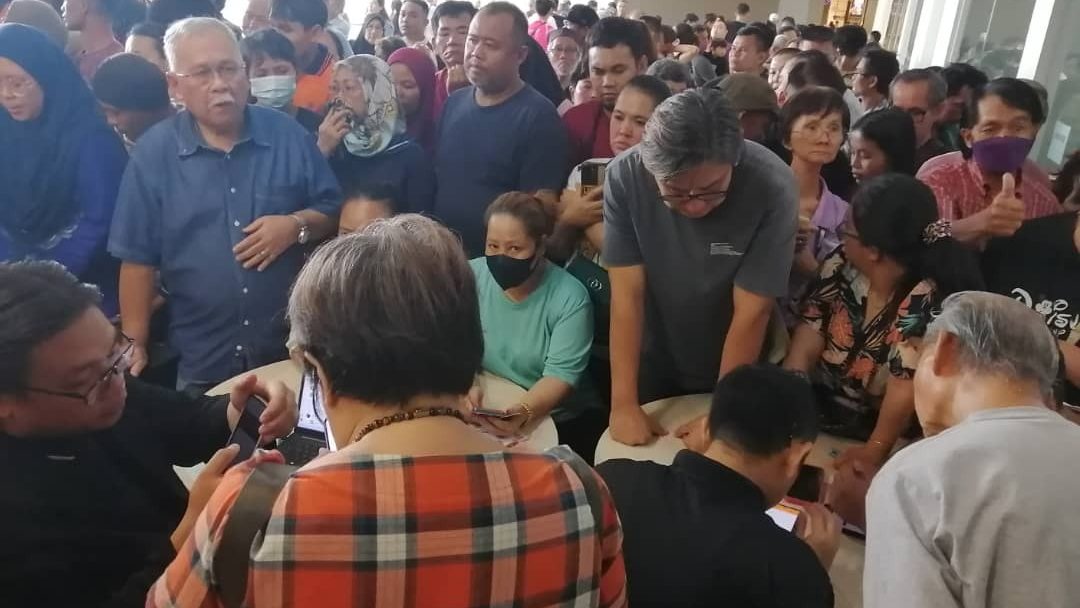Advertisements
KUCHING (Jan 6): Chaos erupted at CityOne Megamall as thousands of Sarawakians flocked to the S Pay Global registration centre, leading to overcrowding and frustration. The crowds, comprising city dwellers and rural residents from areas such as Lundu, Samarahan, Sri Aman, and Saratok, were there to activate the S Pay Global e-wallet and register for Sarawak ID to qualify for the Sarawak Basic Needs Assistance (SKAS).

The initiative, announced by Premier Datuk Patinggi Tan Sri Abang Johari Tun Openg last November, aims to provide financial aid to Sarawakians. However, the execution has left many disgruntled.
Unmanageable Queues and Public Frustrations
During a visit by Utusan Borneo this morning, four long lines were seen forming outside the registration centre as people scrambled to secure one of the 150 daily queue numbers. Many expressed dissatisfaction with the inefficient system, especially senior citizens, pregnant women, and individuals with disabilities (PWDs).
Advertisements
“It’s chaotic. The elderly and vulnerable groups are struggling to cope with the process,” lamented Abdul Azulah from Saratok. He called for simpler distribution methods such as cash transfers via bank accounts or vouchers.
Technical and Logistical Challenges
Abdul, who traveled with his family to Kuching, shared that the lack of alternatives like Touch n’ Go and Boost has caused inconvenience. Rural residents, like Ronny Anyut from Sri Aman, pointed out the difficulty faced by those without internet access or technical literacy.
“The government needs to consider simpler methods. Many are excluded simply because they cannot visit registration centres or use digital platforms,” Ronny remarked.
Public Suggestions for Improvement
Many called for dedicated channels for vulnerable groups and additional distribution options like vouchers or cash via banks, as seen with previous assistance programmes like BR1M.
“We are thankful for the SKAS, but the process is too complicated,” said Hasfiah Ibrahim. She also expressed concerns about public health risks, highlighting the crowded environment as a potential hotspot for disease spread.
Conclusion
The SKAS programme is a commendable initiative, but its implementation has raised questions about accessibility and efficiency. Sarawakians hope the government will adopt more inclusive and simplified approaches to avoid future overcrowding and ensure aid reaches everyone in need.


